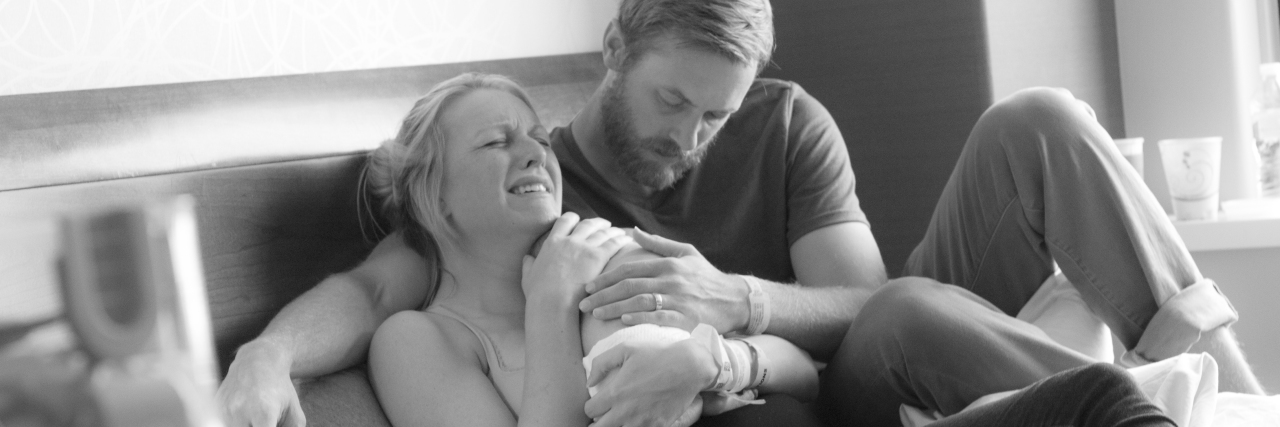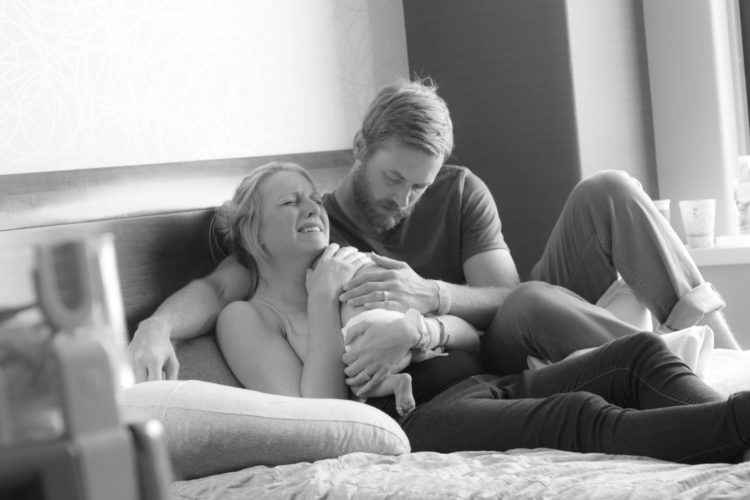July 1, 2016 — the absolute worst day of my life to date. You see, this was the day we had to do the impossible. Somehow, a short five days after giving birth, my husband and I had to hold our baby boy in our arms while his medical team ripped the life support from his frail, little body. This was supposed to be the last day I would ever get to feel his touch, kiss his skin, and embrace his little being. Bluntly put, Karter was supposed to die.
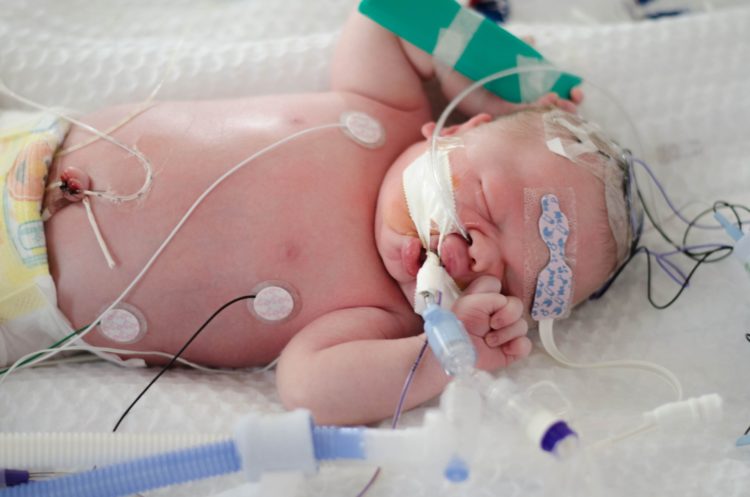
I haven’t talked much about this day, or the days to follow. Truthfully, it’s too painful. In some ways we seem so far from that very dark period of our life, and I’d like to keep it that way. Yet, without these experiences, without this trauma, without this despair, we would not have the perspective we do. We would not have the appreciation for all things, big and small. We would be completely different people, different parents. These are the moments that make or break you. These are the circumstances that test your strength, faith, and character to its core. From this day on, we would never be the same. And as painful and horrific as it was, Karter’s birth and almost-death has made us BETTER people. Stronger people. People who feel and care more deeply than they did before all of it happened.
So what was that time really like? I’m often told, “I don’t know how you did it.” Neither do I. But it’s time I try to tell the story. Some of these moments and pictures I’ve never shared. So here goes nothing…
Four days after Karter’s birth, we were supposed to meet his medical team to review the results of his MRI. This was to take place in the conference room. Karter under went the cooling/warming protocol which can have a profound impact on brain injuries. We were hopeful. There wasn’t any other way to be. Yet, we were also panicked. Fearing the worst. Still in shock and grief from what had just happened.
That Thursday, they changed the meeting location to the board room in the NICU (the room my husband and I shared while Karter was in the NICU). They brought the chaplain, our angel of a social worker, and the rest of the team. I knew what they were going to tell us. Still, hearing the words out loud were crippling. I remember kneeling over, yelling, “Oh, God, no. No. No. NO.” I still don’t remember the exact words, but the gist of their message was that Karter would have no quality of life. He would not be able to do anything, see anything, hear anything, eat anything. A life of pain and suffering. That’s not life. What choice did we have when medical professionals who, at the time, we respected and trusted, told us this was his certain prognosis? No amount of time would change his outcome.
So my husband and I embraced, and made the selfless decision to remove his life support. We would send him to heaven to meet his maker, so that his earthly body would not have to experience pain or suffering. We made a plan, got photographers lined up, and tried to prepare ourselves for that moment.
The next day, both sets of parents, Kole’s brother, and our daughter, Maddie, came to say their goodbyes. This would be the only time Maddie would spend with her brother. She hadn’t met him yet, since children are not allowed in the NICU. It was a very special time. For a moment, life was as it was supposed to be. All four of us, in the hospital together, reading books as a family. Truly, we were so thankful to have that. After Maddie had her time, each grandparent and Kole’s brother held Karter one last time to say goodbye. It was a beautifully devastating thing to witness.
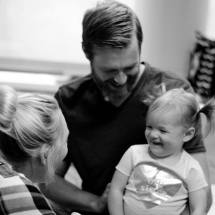
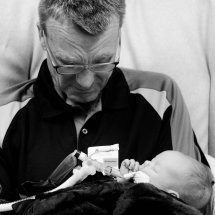
The moments went by too quickly, and soon it was here. It was time to say goodbye. We had our photographer from Now I Lay Me Down To Sleep come in the room. We didn’t notice her, though. It was all too surreal. Yet, somehow, we were ready. We were at peace. I don’t know how to explain it, and I don’t know that I completely do as I type the words. But we were.
I will never forget the sound as the tubing was torn from his airway. I held him in my arms, kissed his forehead, and braced myself to feel his body stop. We were told that it could happen immediately, or could take hours. They weren’t certain. But they WERE certain death was inevitable. So our prayer was for time.
Those moments immediately after were a blur. I’m so grateful for the photos we have, as the trauma doesn’t allow me to fully recall them. What I do remember is snuggling, singing, praying, and embracing. We played Christian music in the background. “The Eye of the Storm” was the song that sticks out most. It was fitting.
I remember looking at the clock, and being in awe that we got time. Minutes turned into hours and we were so thankful. We dressed him, read to him, and loved him. We took all the videos we could, while still being present. I don’t know how, but within all of this we were truly able to experience joyful moments. As the evening approached, and Karter remained stable, the medical team forced our family and friends to leave. Kole and I struggled with what to do. We were exhausted in every sense of the word, but also didn’t want him to die while we slept. That was our reality during this time. Do we sleep? We eventually got to a point where we were at peace if “it” happened overnight. We snuggled him up in his sleeper, something we thought we’d never get to use. We tucked him in between us, and somehow feel asleep. If Karter passed away, he would be in between his loving parents. We were at peace with this.
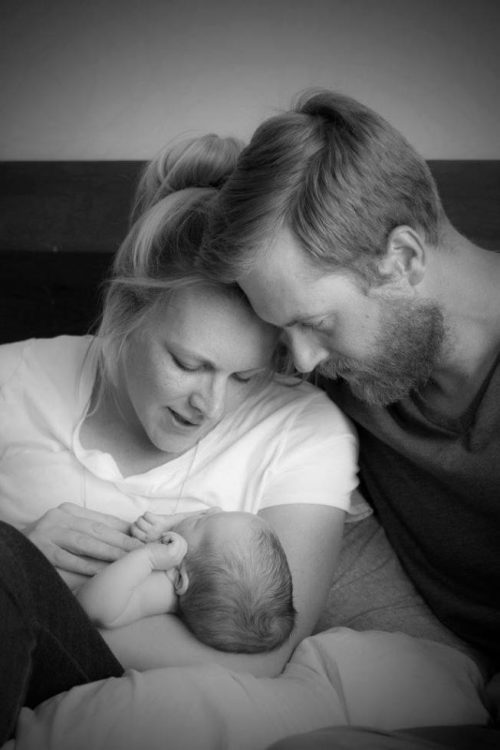
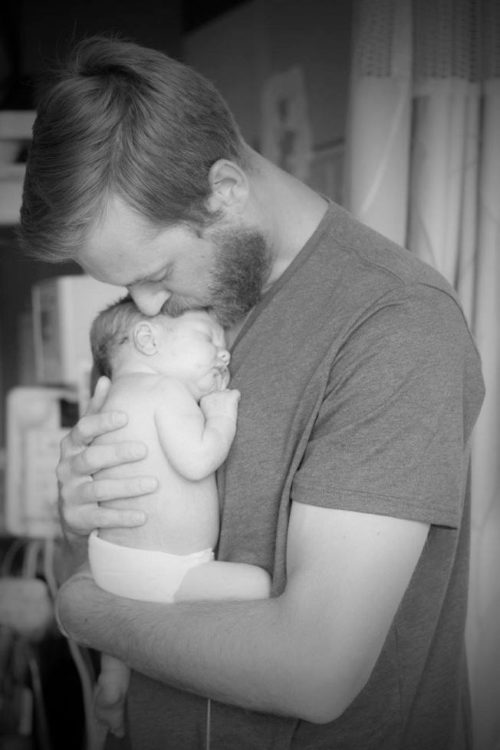
To our surprise, the next morning he was stable. It was a beautiful sunny day, and I hadn’t seen outside the hospital walls since I arrived the afternoon of June 26. I remember calling my mom to bring Maddie back. We were so thankful for another day. More time to create memories. We got to dress him for a second time — something we never thought we’d be able to do. So they brought her back, and we were able to take Karter and Maddie to the hospital playground. And for a moment, it seemed “normal.” There we were, pushing our newborn boy while our 2 year-old ran around the park. The sun was shining. We were smiling. I remember intentionally trying to soak in those moments. I wanted time to freeze. Maybe this was all a bad dream after all? 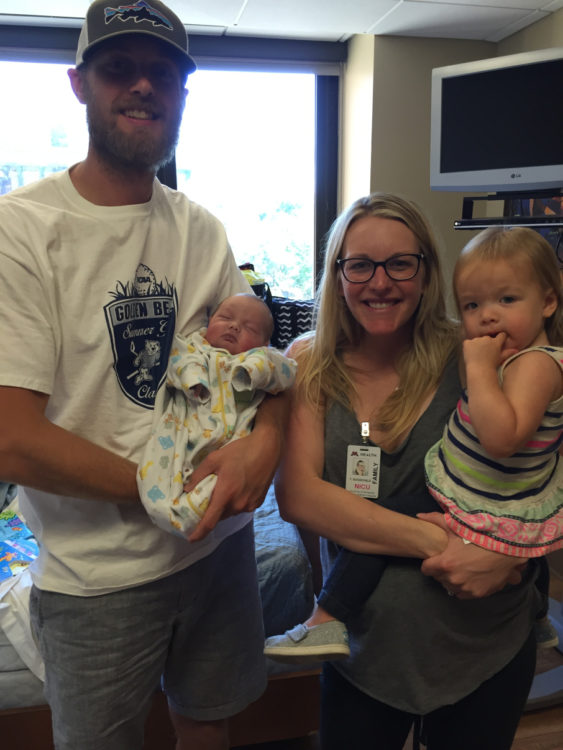
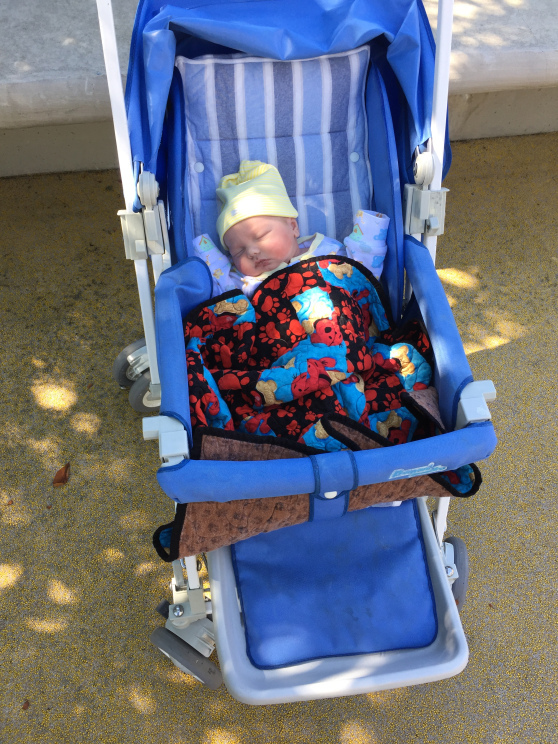
Later that day, Karter continued to remain stable. Kole and I wrestled with whether to eat, shower, etc. We didn’t want to miss anything. You see, at this time, we didn’t understand (because nobody explained it properly) that dying was a process. We truly thought that at any moment Karter would stop breathing. That the end could come abruptly. We didn’t “get it,” and in my opinion, we should have. We spent the entire day going on walks, and soaking in the moments. We were even allowed to leave campus and take him to Starbucks across the street. I remember thinking that we looked normal to most people. Nobody had any idea what we were going through. A good reminder that you never really understand what a person is dealing with. Later that afternoon we had his hands and feet molded. We had intended on doing this post-mortem. We didn’t want to spend our only moments doing this. But given how much time we already had, we went ahead with this. These were the types of decisions we were making. Should we mold him before or after he dies?
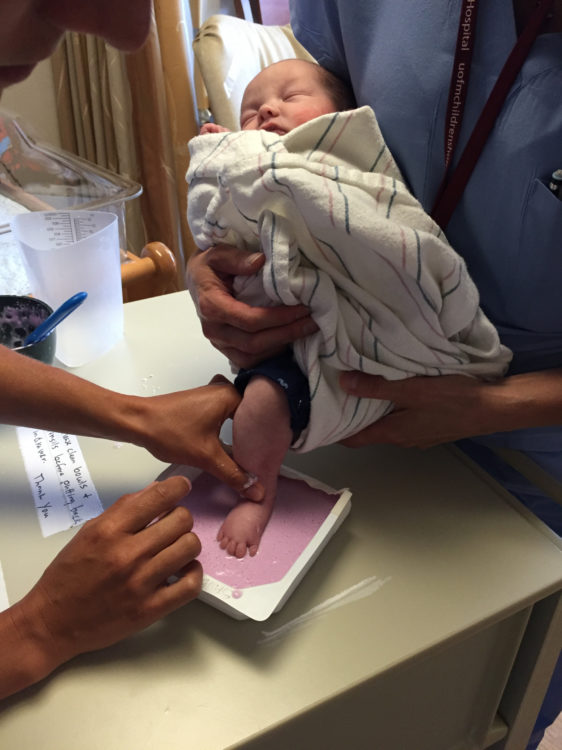
That night we spent a second night sleeping with Karter. A few hours after we had fallen asleep with him, I remember waking up to him smacking his lips and shaking. We called the nurse in right away. We were sure “this was it.” She thought he might be having a seizure, so she gave him some buccal meds. He stopped. He continued to breathe. I think we also took a deep breath. I don’t remember if we were able to sleep after that or not. This is what trauma does. Some moments are crystal clear, while others are completely blurred. But time continued.
The next morning, I remember the on-call doctor wanting to discuss our options. Options? What options? We were NEVER given options. They wanted to talk about the idea of hospice. We had a long discussion about the pros and cons of taking him home. It was heavy. We were not prepared for this. On one hand, Karter belonged at home with us. On the other hand, could we do that? Could we handle having him die at home with no support? What would bringing Karter home to die do to Maddie? Would that confuse her? Cause more trauma? Would sharing time with him be good for her? For us? We were not prepared. We didn’t know what was right.
I remember calling my mom and saying, “Do you want another curveball?” I could hear the excitement and hope in her voice. I’m sure she was hoping that his prognosis had changed. I remember saying, “No, mom. He’s still going to die. Now we have the choice of having him die at home. Not at the hospital.” Then hearing the tinge of disappointment in her voice. The inevitable reality still true, but our grief not wanting to believe.
Ultimately, we decided to bring him home. I don’t know that we could have continued to live the way that we were living. And it seemed the hospital felt like hospice was the best choice. Again, we followed the advice we were given. Truthfully, we couldn’t wait to leave the hospital. But on the other hand, we were terrified for the next chapter. To be on our own. To have Karter die at home.
Still, we made the decision, so home we went. We were told that he may not be able to hold his head up, and was an aspiration risk. So instead of packing him in the infant car seat we brought with us (in anticipation of bringing our newborn home), I held him. I remember thinking “please make it home. Don’t die in the car. Don’t die in the car.” At this time, I still didn’t understand how stable he was. I didn’t understand that he wasn’t going to going into cardiac arrest suddenly.
I didn’t understand.
I should have. I should have had a better understanding. I should have had someone explain to me what was happening. I should have had way more mental health support. We should have had more support. More resources to do what was asked of us. But we didn’t. We should have.
So here we are. Four years later. Writing this story for the first time in retrospect. It doesn’t seem real as I type the words. At the time, I remember brainstorming my final caringbridge entry. What would the last sentence be? Would I write, “He died peacefully at home in the arms of his mother”? Would it read, “He died over night, in the loving presence of his parents and sister”? I wondered how it would end.
We still do. But one thing is clear, Karter is writing his own story. He has his own ending in mind. And it’s far from over.
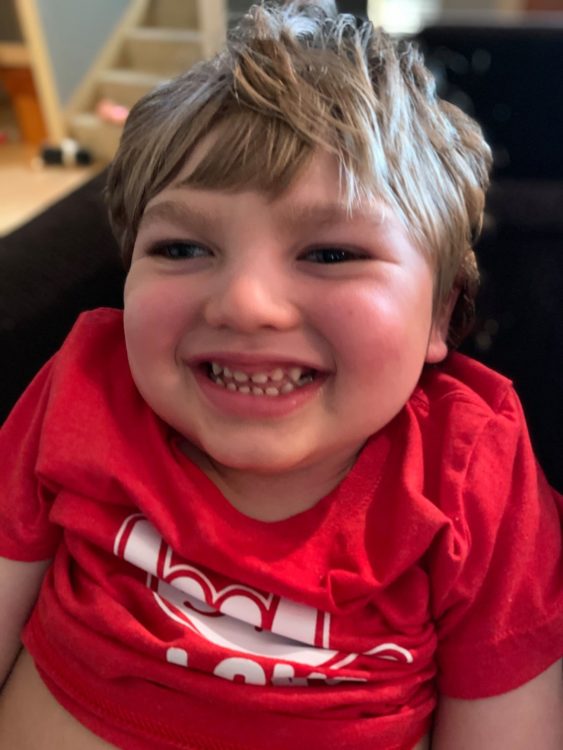
A version of this story originally appeared on ourhiereality.wordpress.com.
Photos submitted by contributor.

